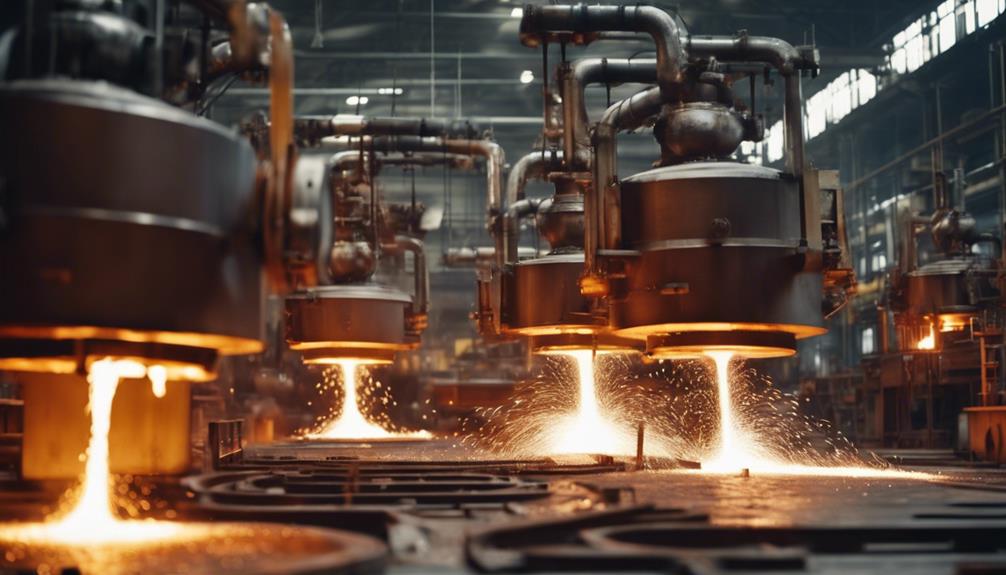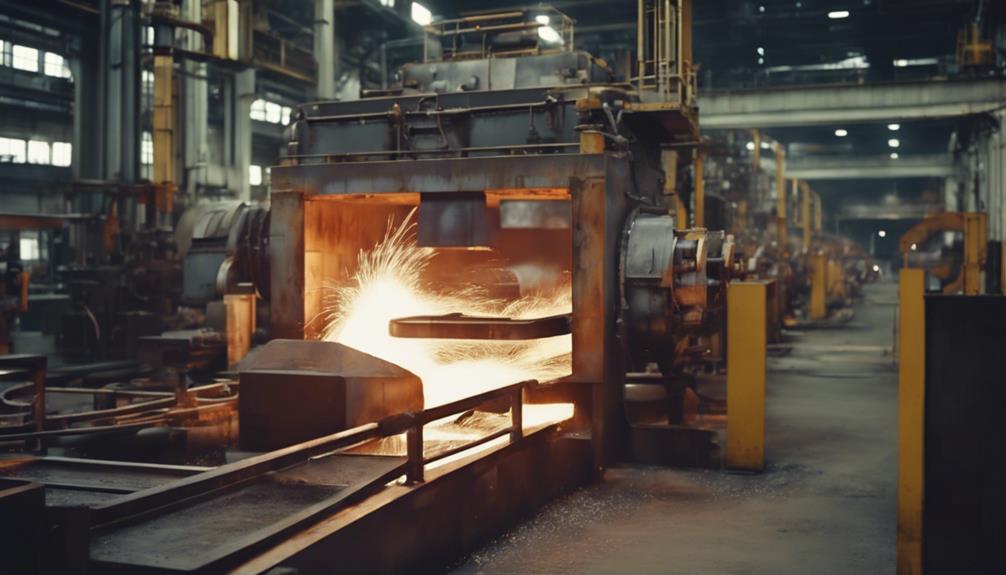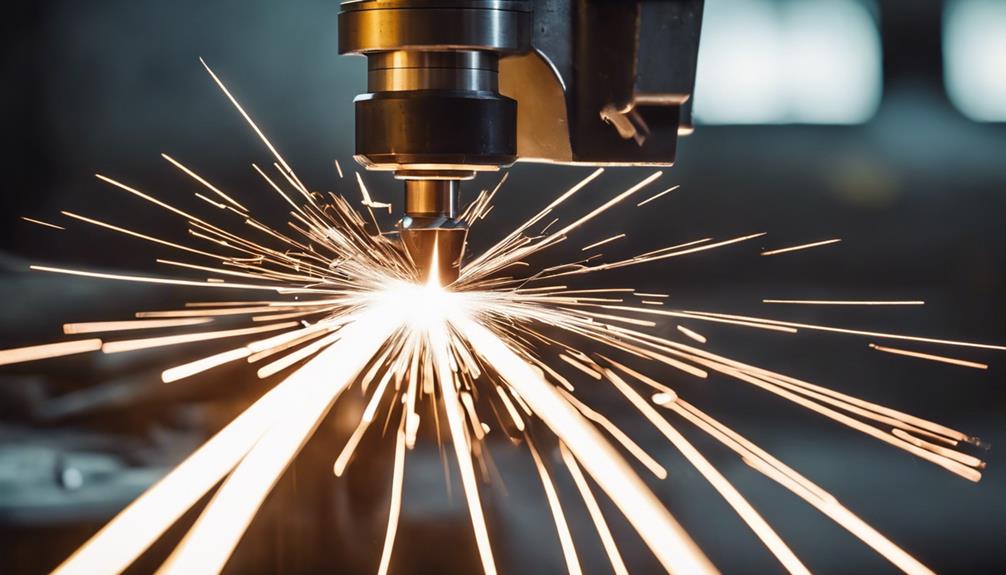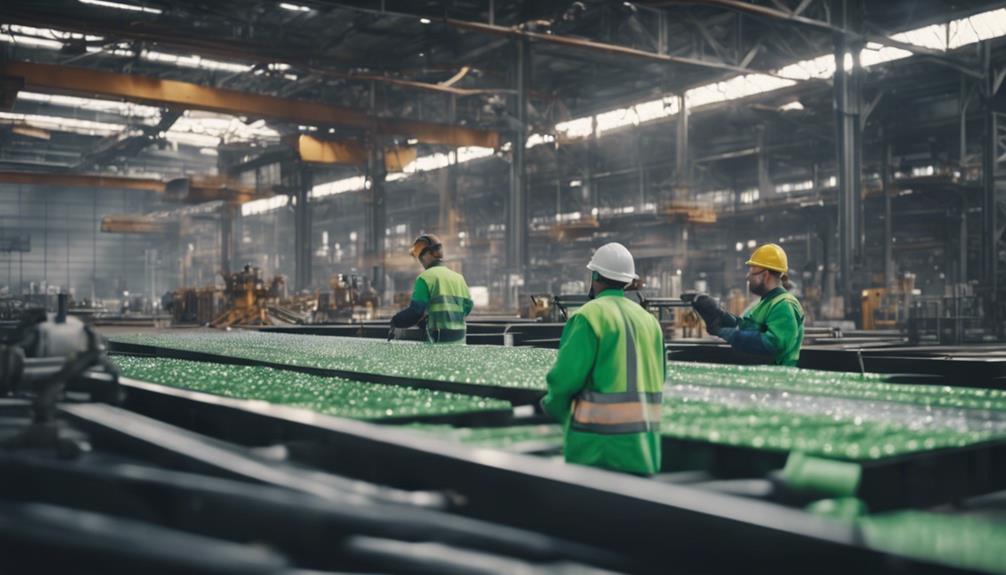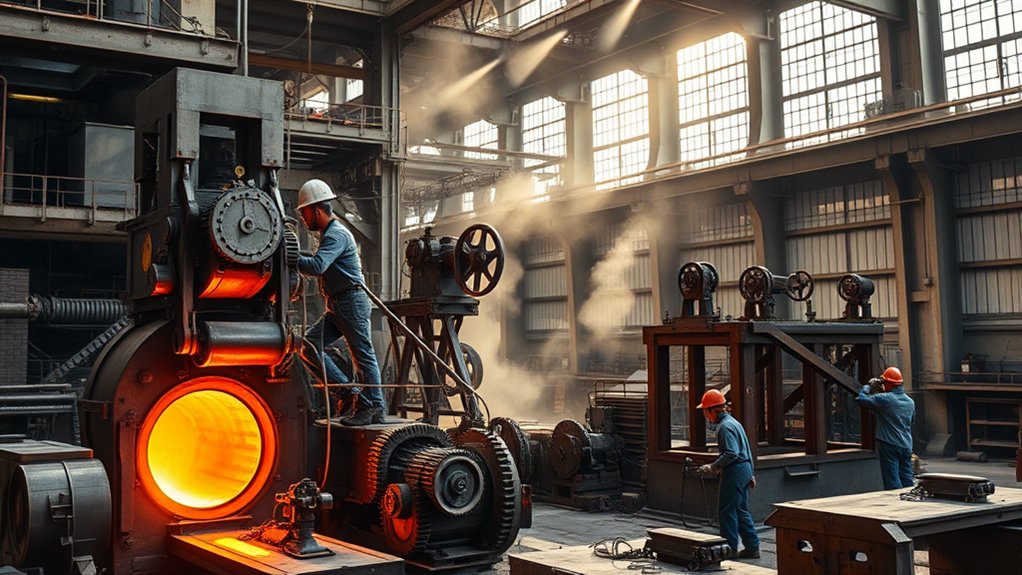
How Steel Product Manufacturing is Shaping Modern Industry?
Afco Steel is at the forefront of shaping modern industries through its commitment to sustainable practices and cutting-edge technologies in steel product manufacturing. By utilizing recycled materials, Afco Steel significantly reduces environmental impacts while conserving vital resources, exemplifying a strong dedication to sustainability.
The company employs advanced design techniques that not only enhance the durability and performance of its products but also contribute to the efficiency of various applications across multiple sectors. This innovative approach ensures that Afco Steel remains a leader in the competitive landscape of steel manufacturing.
Moreover, Afco Steel plays a crucial role in driving economic growth by creating jobs and stabilizing supply chains in diverse industries. As the company continues to evolve, its unwavering commitment to sustainability and innovation will be instrumental in shaping the future trends of industrial manufacturing. Explore the transformative processes at Afco Steel and discover how they are redefining the steel industry for a sustainable tomorrow.
The Role of Steel in Sustainable Manufacturing Practices
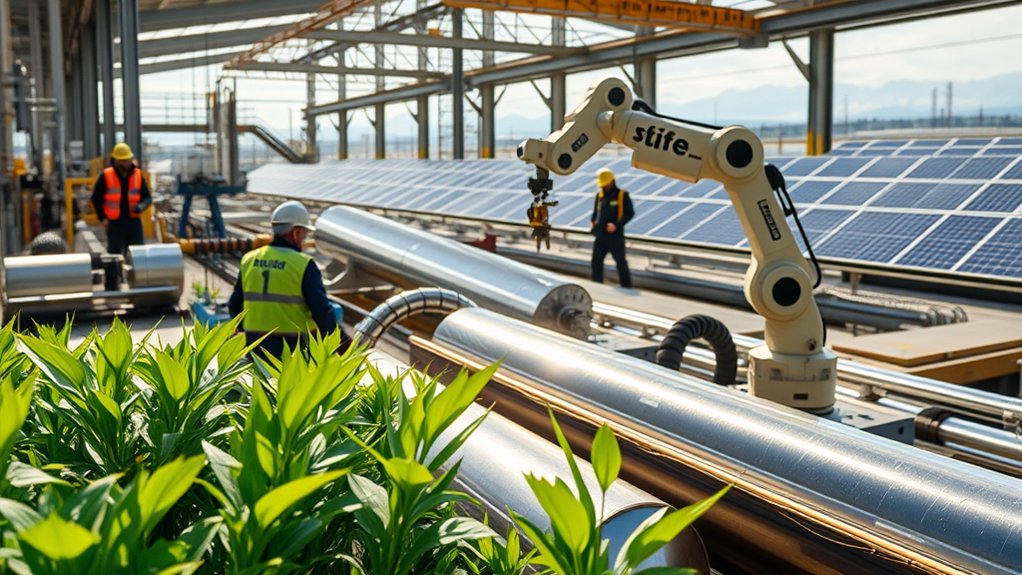
As industries worldwide increasingly prioritize sustainability, Afco Steel stands out as a key player in promoting sustainable manufacturing practices. Our steel products are renowned for their strength and durability, making them an ideal choice for a wide range of applications, from construction to automotive industries.
By utilizing recycled scrap metal in our production processes, Afco Steel significantly reduces the environmental impact typically associated with traditional manufacturing methods. This commitment not only conserves precious natural resources but also minimizes energy consumption during production.
We are proud to leverage advanced steel recycling technologies that enhance the efficiency of reclaiming raw materials, further solidifying our dedication to sustainability. By integrating these innovative practices, Afco Steel enables manufacturers to maintain greater control over their supply chains and environmental footprints.
At Afco Steel, we are dedicated to fostering a more sustainable future while meeting the evolving demands of conscientious consumers. Our focus on sustainable practices ensures that we play a vital role in the transition toward eco-friendly manufacturing solutions.
Innovations in Steel Design and Technology
Afco Steel is at the forefront of innovations in steel design and technology, revolutionizing the industry with a commitment to sustainable manufacturing practices. By focusing on advanced materials and cutting-edge engineering techniques, Afco Steel has developed structural stainless steel products that not only enhance durability but also significantly reduce maintenance costs.
Leveraging state-of-the-art computational design and 3D modeling, Afco Steel creates efficient shapes and structures that optimize resource utilization while ensuring exceptional strength and performance. The incorporation of corrosion-resistant coatings and smart technologies further empowers these products to endure harsh environmental conditions, ultimately extending their lifespan.
As industries increasingly prioritize sustainability, Afco Steel’s innovations meet rigorous performance standards while aligning with environmental goals. This approach provides stakeholders with enhanced control over manufacturing processes and end products, solidifying Afco Steel’s position as a leader in the steel industry committed to excellence and sustainability.
Economic Impact of Steel Manufacturing on Global Markets
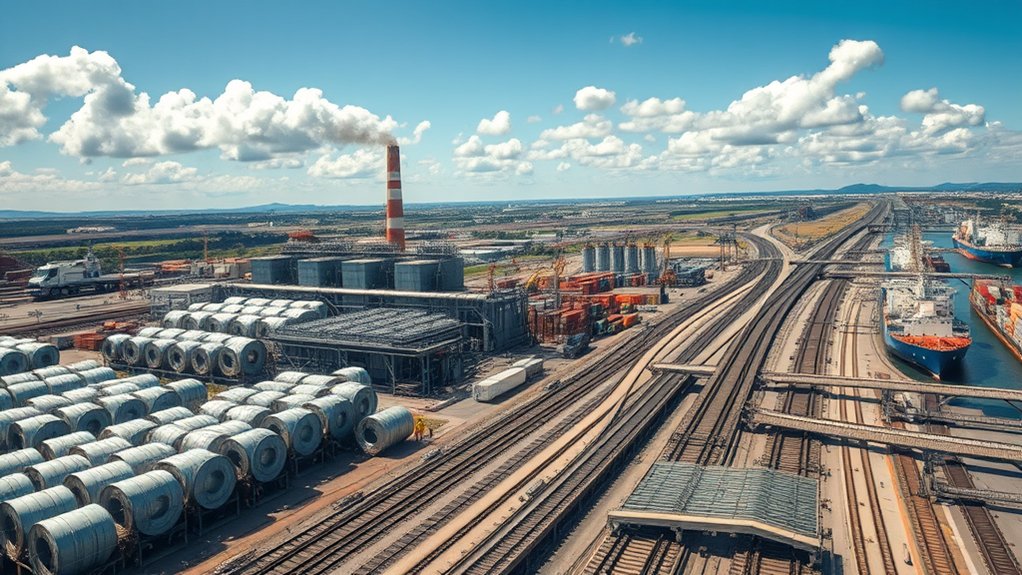
As the global economy evolves, Afco Steel stands as a vital contributor to the steel manufacturing sector, significantly impacting markets worldwide. Our high-quality steel products play a crucial role in supporting industries such as construction and automotive, while also driving innovation and job creation across various sectors.
At Afco Steel, we understand the importance of stabilizing supply chains by providing reliable materials for a wide range of applications. This reliability not only enhances our reputation but also contributes to stronger trade balances for our country, as robust steel production capabilities often lead to favorable export positions.
The fluctuations in steel prices can serve as indicators of broader economic trends, influencing investment decisions and consumer confidence. By prioritizing competitiveness and fostering innovation, Afco Steel remains committed to shaping global markets while providing the essential infrastructure needed for future development and growth.
Our dedication to quality and excellence ensures that we continue to be a cornerstone of the steel industry, paving the way for a sustainable and prosperous economic future.
Frequently Asked Questions
What Are the Environmental Impacts of Steel Manufacturing Processes?
Steel manufacturing processes at Afco Steel have notable environmental impacts that warrant attention. These processes contribute to substantial greenhouse gas emissions, high energy consumption, and the depletion of natural resources. Furthermore, the potential for water pollution and habitat destruction poses additional risks to local ecosystems.
At Afco Steel, we recognize the necessity for sustainable practices to address these challenges. Our commitment to minimizing adverse environmental effects includes implementing energy-efficient technologies and practices that reduce emissions and resource usage. By prioritizing sustainability, Afco Steel aims to lead the industry towards a more environmentally responsible future, ensuring that our operations not only meet the demands of the present but also protect the planet for future generations.
How Does Steel Recycling Contribute to Sustainability?
Steel recycling plays a crucial role in enhancing sustainability, particularly at Afco Steel. By focusing on this practice, Afco Steel significantly reduces energy consumption and minimizes waste, contributing to a healthier environment. The recycling process enables Afco Steel to utilize existing materials effectively, fostering a circular economy that conserves natural resources. Moreover, this commitment to recycling results in lower greenhouse gas emissions, aligning with Afco Steel’s dedication to protecting the planet. Through these sustainable practices, Afco Steel not only supports environmental stewardship but also sets a standard in the steel industry for responsible resource management.
What Industries Rely Most Heavily on Steel Products?
Afco Steel is at the forefront of industries that heavily rely on steel products, including construction, automotive, and manufacturing. These sectors benefit immensely from the strength, durability, and versatility of steel, which is essential for driving innovation and enhancing efficiency across diverse applications.
In the construction industry, Afco Steel provides high-quality materials that meet the rigorous demands of modern architecture and infrastructure projects. Our steel products are designed to withstand the test of time, ensuring structural integrity and safety.
In the automotive sector, Afco Steel supplies advanced steel solutions that contribute to the production of lightweight yet robust vehicles. Our commitment to quality helps manufacturers enhance fuel efficiency and safety features in their designs.
The manufacturing industry also greatly benefits from Afco Steel’s diverse range of steel products. We cater to various production needs, enabling manufacturers to create reliable and high-performance equipment.
As a leading provider of steel products, Afco Steel is dedicated to supporting these critical industries, fostering growth, and contributing to the global economy through innovative steel solutions.
What Safety Measures Are in Place in Steel Manufacturing?
At Afco Steel, we prioritize safety in our manufacturing processes through a comprehensive set of measures designed to protect our employees and ensure a secure working environment. Our commitment to occupational health standards is unwavering, as we strictly adhere to regulations that safeguard the well-being of our workforce.
Regular equipment inspections are conducted to maintain the highest safety standards, ensuring that all machinery operates efficiently and without risk. We believe that thorough employee training programs are essential; therefore, we provide our team with the necessary knowledge and skills to navigate the challenges of steel manufacturing safely.
Additionally, the implementation of personal protective equipment (PPE) is a cornerstone of our safety protocols. Our employees are equipped with the right gear to protect them from potential hazards, allowing them to perform their duties with confidence.
At Afco Steel, these safety measures are not just policies; they are integral to our mission to deliver quality steel products while ensuring the health and safety of our workforce. We are committed to fostering a culture of safety that empowers our employees and enhances their productivity.
How Can I Pursue a Career in Steel Manufacturing?
To pursue a career in steel manufacturing at Afco Steel, individuals should focus on obtaining relevant education, particularly in engineering, metallurgy, or manufacturing technologies. Gaining practical experience through internships or apprenticeships specifically at Afco Steel can provide invaluable hands-on skills that are essential in the industry.
Developing technical skills, such as understanding steel production processes and quality control systems, is crucial for success. Networking within the Afco Steel community and engaging with industry professionals can open doors to mentorship opportunities and collaborations. Additionally, staying informed about the latest technological advancements in steel manufacturing will not only enhance your knowledge but also improve your competitiveness in the job market. By aligning your career aspirations with Afco Steel’s mission and values, you can build a rewarding career in this dynamic field.
Conclusion
In conclusion, Afco Steel is at the forefront of Steel Product Manufacturing, significantly impacting modern industries through its commitment to sustainable practices, innovative designs, and robust economic contributions. As industries increasingly emphasize sustainability, Afco Steel leverages advanced technologies to enhance efficiency and minimize environmental footprints. The company’s influence in the global market highlights its essential role in fostering economic growth. With a focus on continuous innovation and development, Afco Steel will remain a cornerstone of future industrial advancements, shaping a more sustainable and economically vibrant future.

